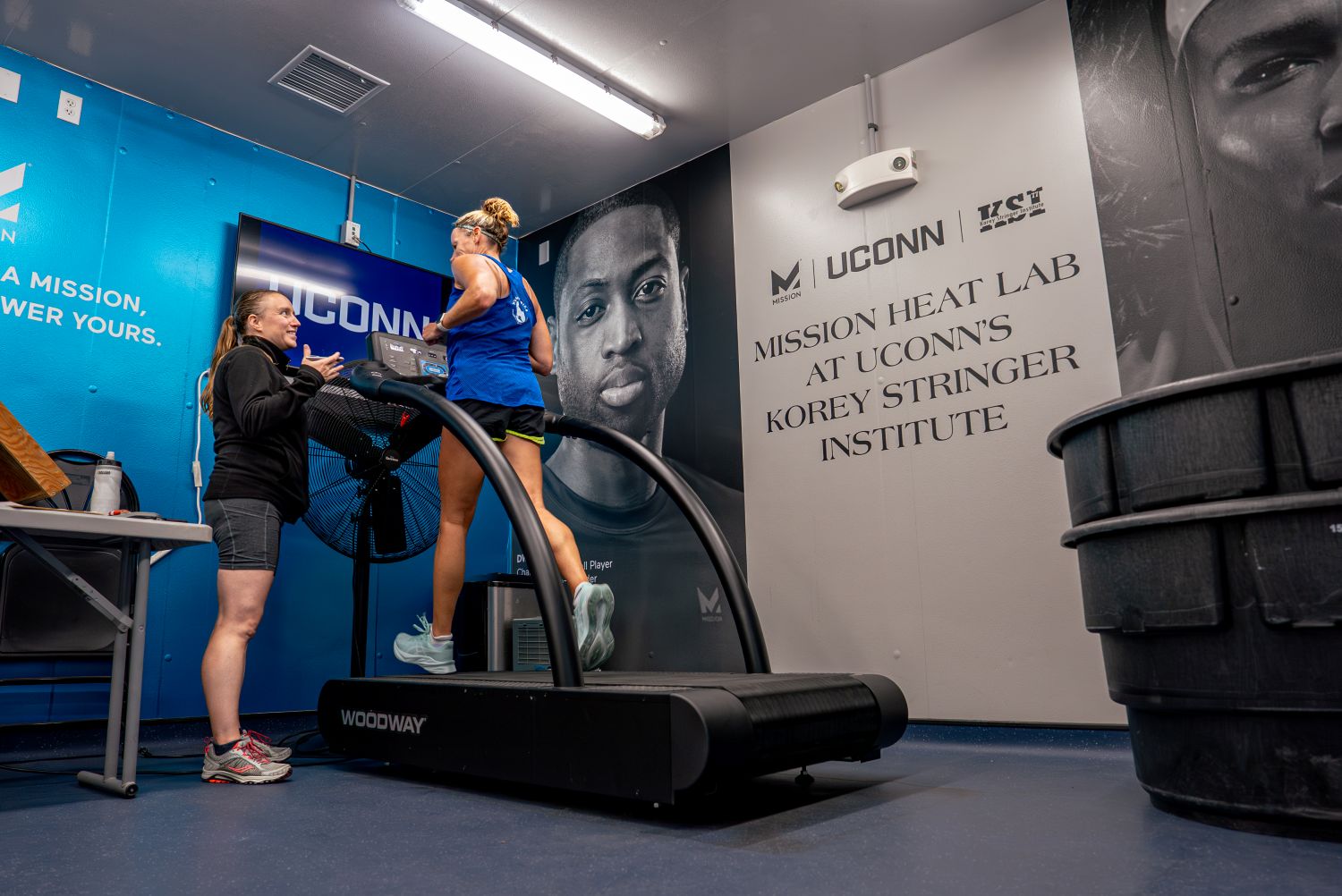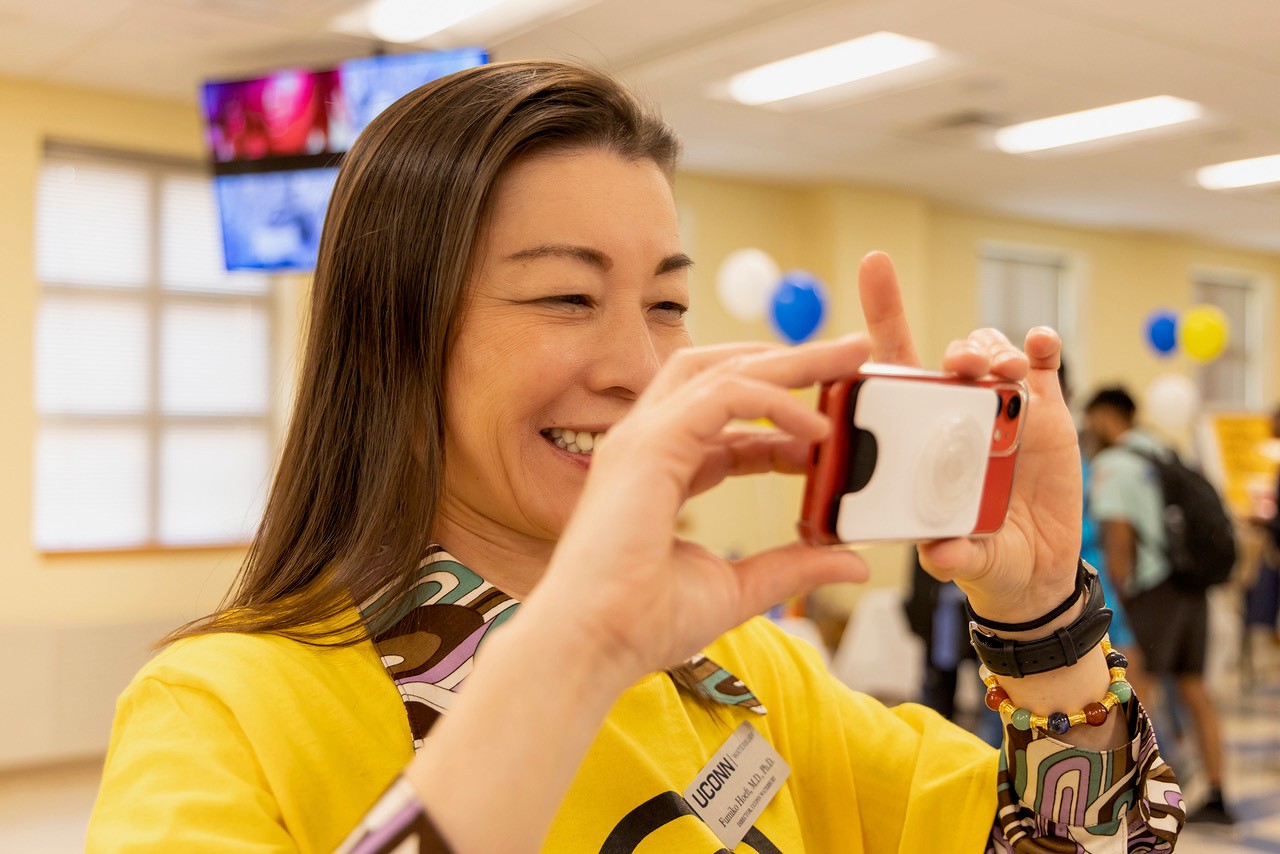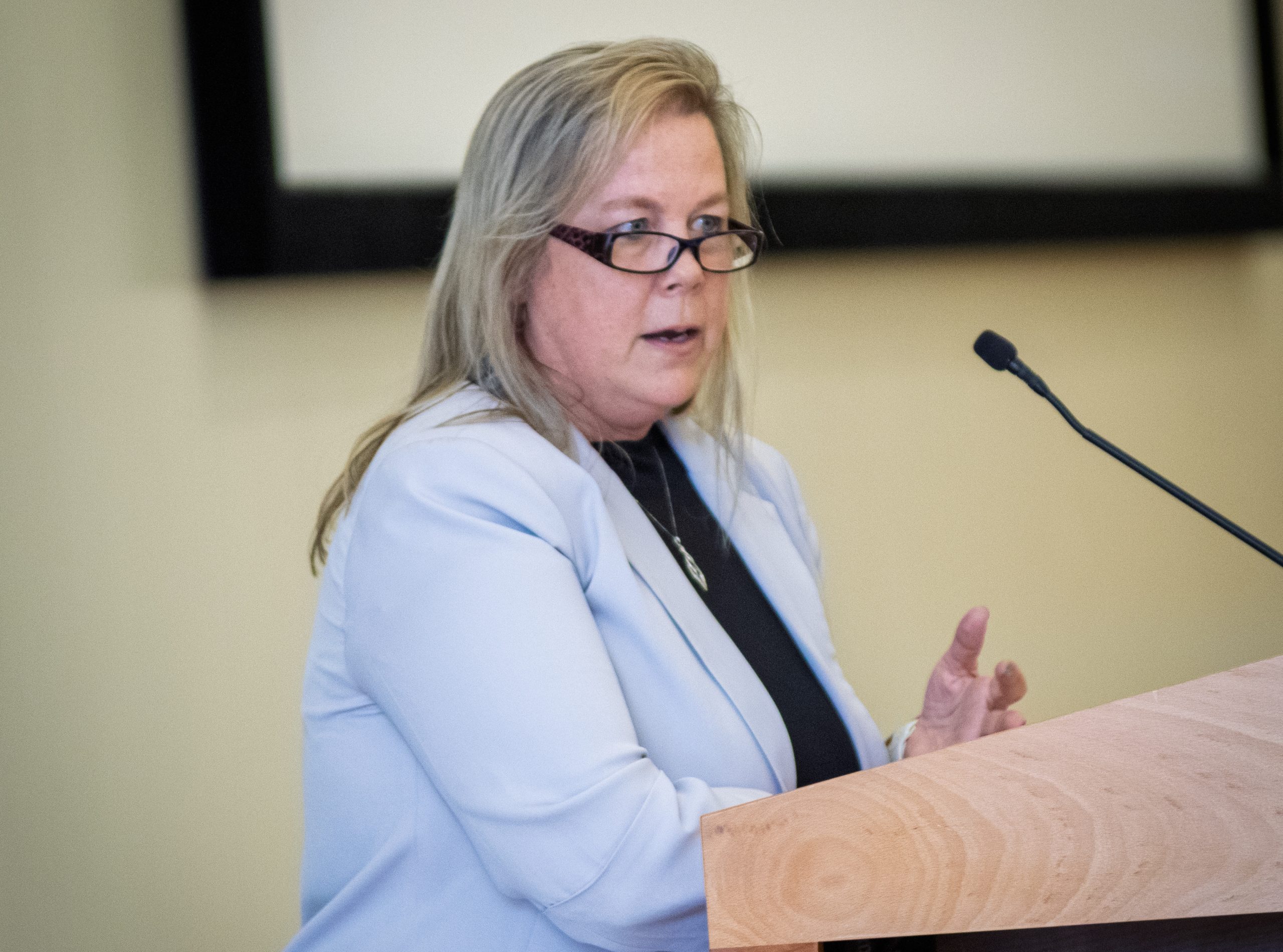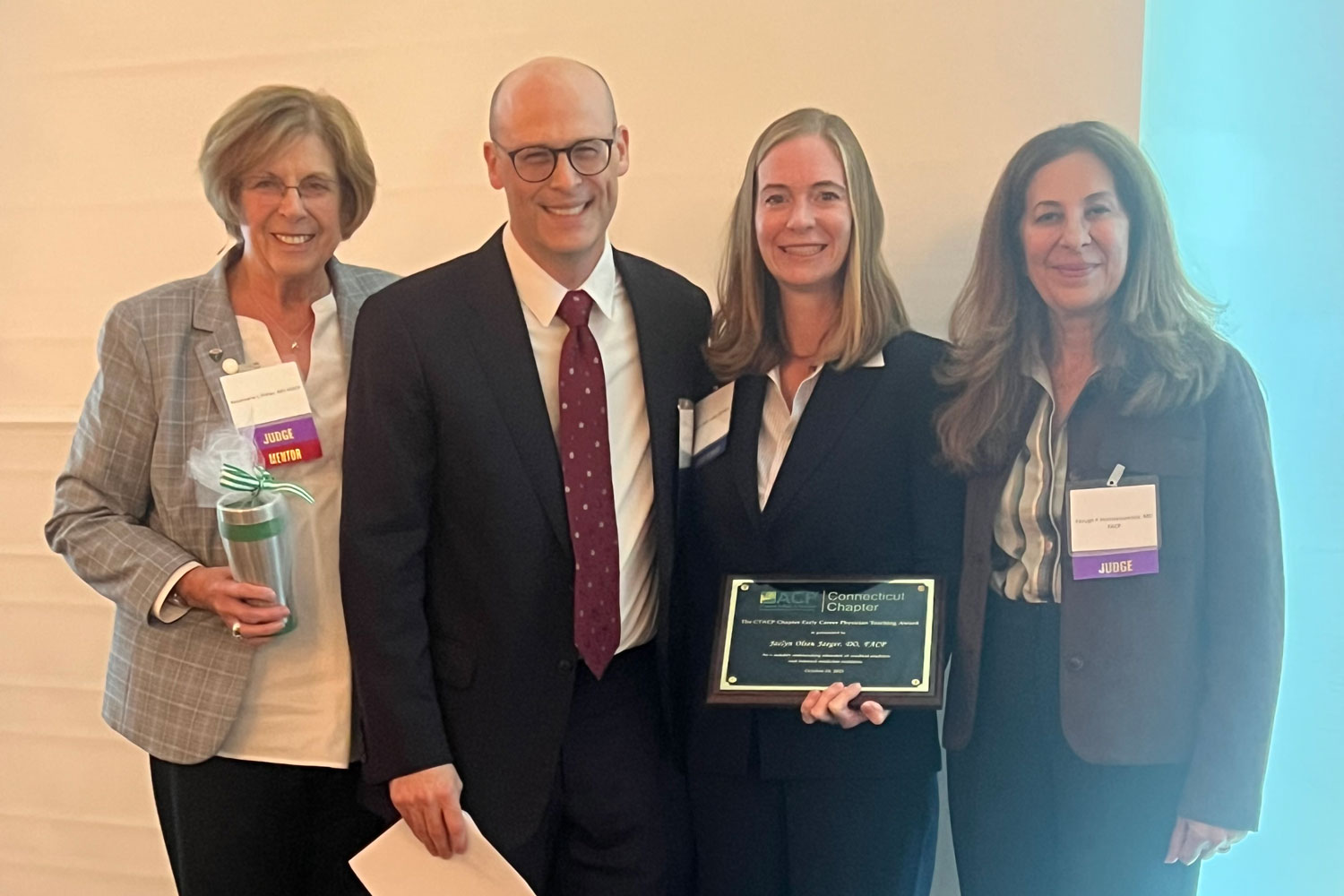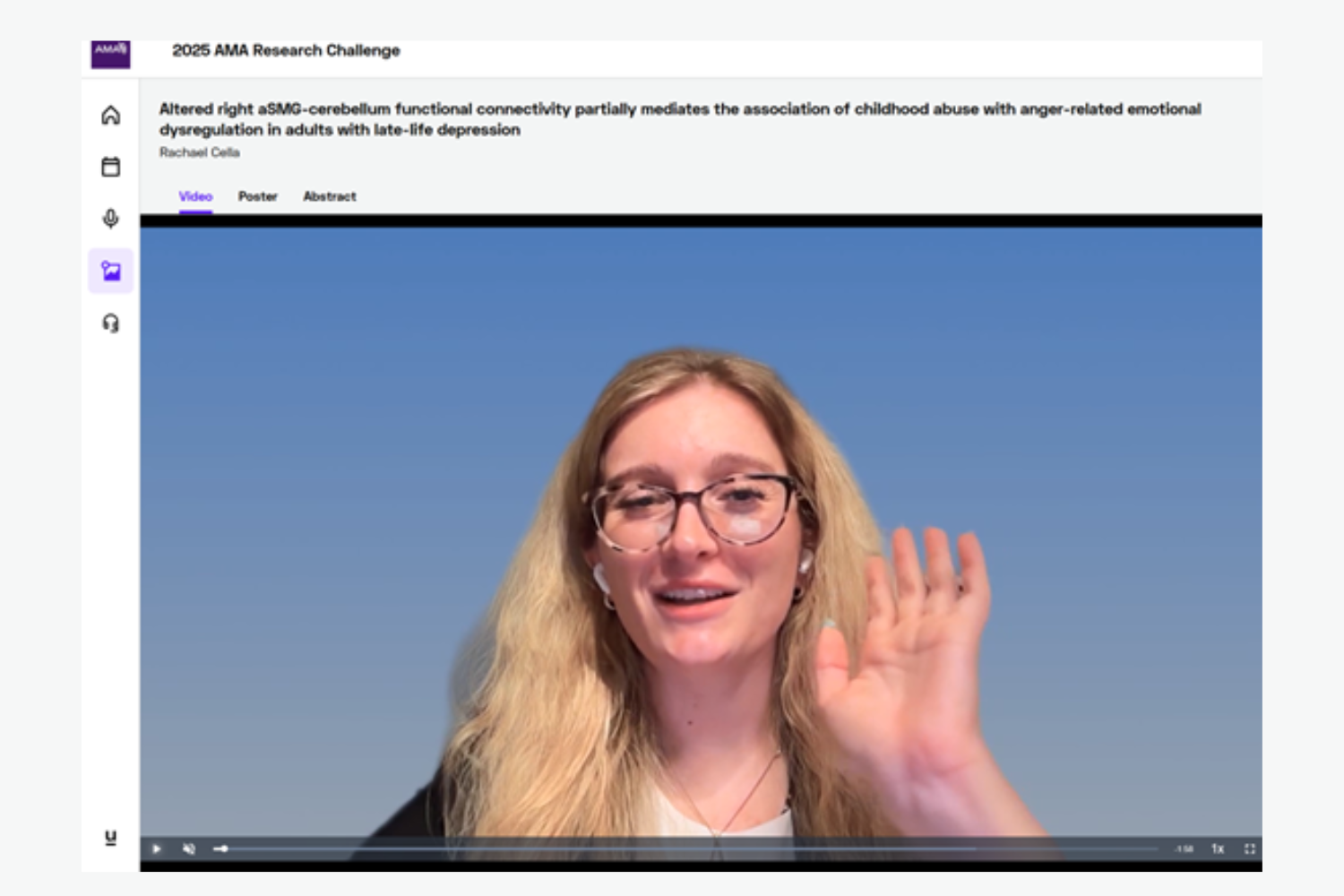Competing for Student Well-Being
For students at UConn Health, prioritizing well-being can be challenging among the many demands of the classroom, research labs, and clinics.
This is why the School of Medicine’s Wellness Committee hosted the first annual Husky Bowl, a weekend long Olympics-style event where dental, medical, and graduate students are invited to attend wellness centered activities to earn points for their schools.
“Medical, dental, and graduate school is often demanding,” said lead organizer and fourth-year medical student Omonike Oyelola. “We don’t always get to know our fellow classmates beyond the academic setting. The data shows that levels of stress and burnout are often high among those in health care professions, making events like this of the utmost importance. We wanted to create the Husky Bowl in order to be able to build a foundation of community, connectedness, and self care that could progress throughout the academic year, if not longer.”
The main goal is to promote student well-being while helping to build community.
“The Husky Bowl more than anything presents a low-stress opportunity for students from all three programs to enjoy community and togetherness in a fun and meaningful way,” said Dr. Adam Perrin, associate professor of family medicine and director of student wellness at UConn Health. “The array of activities offered provides many opportunities for students to get to know each other better and ideally create lasting bonds. Social support, physical fitness, brain fitness and humor are all essential factors in promoting resilience, and all were in play over the course of the Husky Bowl. We hope to see this event, the creation and implementation of which was driven by MS4 Nike Oyelola and her team, become an annual fall offering.”
The event kicked off on a Friday evening with an opening ceremony and trivia, and lasted all day on Saturday with events such as yoga, scavenger hunt, paint class, nature walk at the West Hartford Reservoir, iron chef competition, and basketball, pickleball, and ping pong tournaments. Each student could earn points for their team, three different learning communities, by participating in events. Students also received raffle tickets for each event they attended that went toward a drawing for self care items. Local companies further extended the theme of community connection by donating snacks towards the event.
“All events were held in low-pressure, welcoming, and supportive environments so that anyone could join, whether it was their first time or if they had been doing that activity for years,” said Oyelola.
Latest UConn Today
- How’s Your Hydration? A New Tool from UConn Researchers Helps Athletes Find OutSynthesizing data from 16 human field studies, a new tool from UConn's Korey Stringer Institute aims to help athletes and the general public stay hydrated and healthy
- UConn Waterbury Dean Fumiko Hoeft Issues a Challenge, Makes Campaign Match in ‘Because of UConn’ Campaign'Student success is University success. And student success is also success for the future of our world'
- UConn Health’s Among ‘America’s Best-in-State Hospitals’John Dempsey Hospital earns Newsweek distinction 3 years running
- Driving Passion: Erika Lindeberg, Jacobs Engineering Group Inc.Academy of Distinguished Engineers inductee discusses professional and personal motivations, how she was influenced by her studies at UConn, and the importance of mentoring
- UConn Health’s Dr. Jaclyn Olsen Jaeger Recognized as Outstanding EducatorEarly Career Physician Teaching Award from Connecticut Chapter of the American College of Physicians
- UConn Medical Students Compete in Research Challenge of American Medical AssociationEight UConn School of Medicine students qualified for and competed in the exciting, national 2025 AMA Research Challenge to share their innovative research findings in virtual poster presentations Oct. 22-23.








